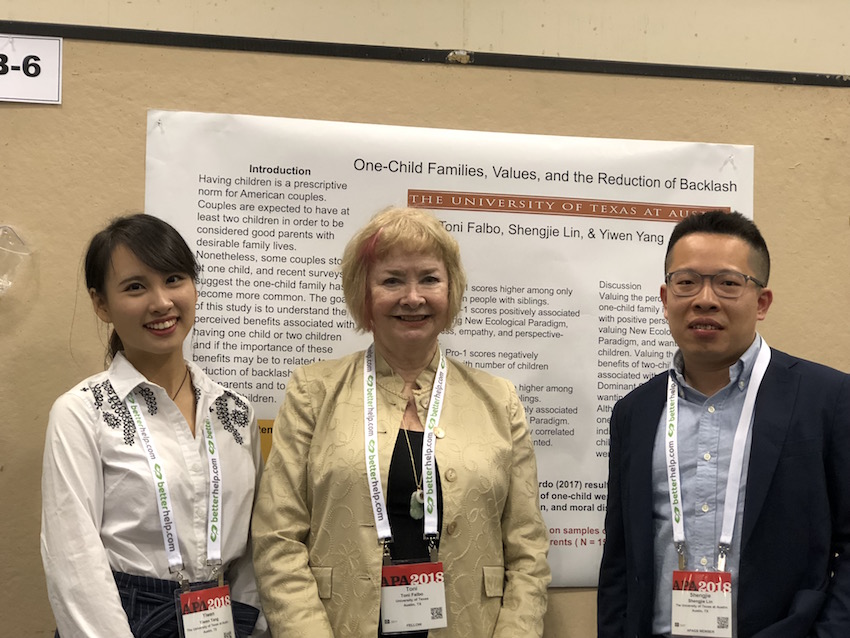China’s one-child policy may have mental benefits for female born children, according to UT psychologist Toni Falbo.
Evaluation results showed that singleton females described themselves as others described them, and indicating they may be less egocentric than singleton males, Falbo, professor of educational psychology said.
The one-child policy also opened up educational opportunities for girls that would not have been available prior to its enactment, Falbo added.
“Sometimes, parents of only child females would have the mindset of, ‘Well, she’s all we got, so we might as well send her off to school,’” Falbo said.
The policy was initiated in the 1970s and restricted many parents to having one child each in order to reduce population growth in urban areas, according to the Encyclopedia Britannica. China’s government highly enforced this idea upon urban families who sought benefits such as housing and resources in cities.
Propaganda for the one-child policy was more prevalent in urban areas, Falbo said.
“They called it at that time ‘saturation propaganda,’ which means that everywhere you looked, on billboards, television, radio, there was this push to help urban parents stay in their jobs and in their homes by encouraging one-child families,” Falbo said.
Falbo added that this “health message” accelerated the economic development of China at the time by freeing up resources to ensure children would be of the highest quality. Investing in schools, nurseries and hospitals was one way to justify this restriction.
Falbo said the policy pressured parents to raise childcare standards in order to meet government expectations. This encouraged self-enhancement in only-child males. Self-enhancement, according to Falbo, refers to when individuals regard themselves at a higher esteem than others perceive them to be.
“They were thinking that they were special and better than the kids with siblings, kind of like heroes of their country … and they described themselves in more positive ways than other people described them,” Falbo said.
The study concluded that while boys exhibited increased narcissistic tendencies, girls received positive evaluations from their peers.
Despite the potential psychological benefits for only child girls, Chiu-Mi Lai, Asian studies senior lecturer, said the one-child policy was also detrimental to the gender imbalance in China. It is possible that parents of only children were more likely to overvalue their sons compared to their daughters because of the traditional Chinese preference, she said.
“While there was this idea of a child as a positive for either a son or daughter, the reason why there is a gender imbalance (in China today) is not coincidental,” Lai said. “Many families have practiced adoption, giving away daughters to orphanages, unsavory practices such as infanticide and ultrasounds to determine whether or not to abort their potential only child female.”
As a result of nearly four decades of the one-child policy that ended in 2016, China’s population not only has a gender gap, but is aging. Chinese citizens over the age of 60 are projected to represent one-third of the population by 2050, according to the National Working Commission on Aging. To address this, the State Council of the People’s Republic of China announced in May that it plans on removing restrictions on children nationwide, according to Bloomberg.
Falbo said despite the policy changes, the one-child policy continues to affect people.
“There are lots of consequences of the one-child policy that will continue on for years … and I am interested in following along those trends,” Falbo said















